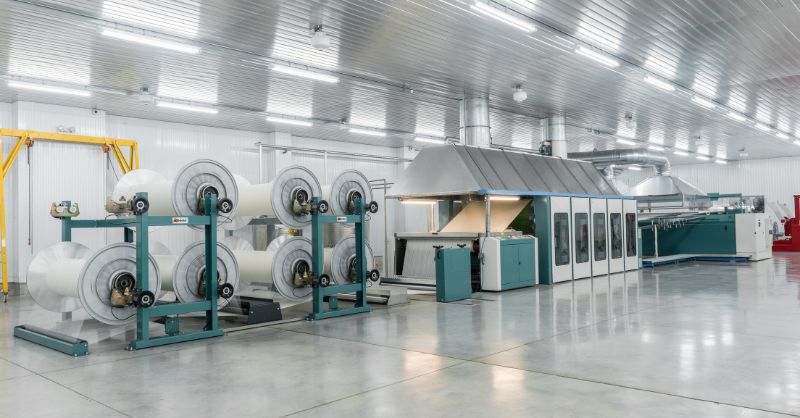Industrial Textile Machinery: An Essential Component in the Textile Manufacturing Industry

The textile manufacturing industry plays a vital role in providing us with the fabrics and materials we use every day. Behind the scenes, there is a crucial player that ensures the smooth operation and efficiency of this industry: industrial textile machinery. Textile machinery suppliers and manufacturers are at the forefront of delivering cutting-edge technology and equipment to meet the diverse needs of this dynamic industry.
Textile machinery encompasses a wide range of equipment designed to facilitate various stages of textile production, including spinning, weaving, knitting, dyeing, and finishing processes. These machines are responsible for transforming raw fibers into high-quality fabrics, ensuring precision, speed, and consistency in the manufacturing process.
Textile machinery manufacturers are continuously innovating and introducing new technologies to meet the evolving demands of the industry. The advancements in automation, digitalization, and artificial intelligence have revolutionized the textile manufacturing landscape, enhancing productivity and reducing production costs. These innovations have paved the way for improved quality control, increased production capacity, and faster turnaround times.
There are several types of textile machinery available in the market, each serving a specific purpose in the manufacturing process. One of the primary types is spinning machinery,
Weaving machinery is another critical component of textile manufacturing. This equipment is used to interlace two sets of yarn, creating woven fabrics. Manufacturers have introduced shuttle-less weaving machines, such as air-jet and rapier looms, which offer higher production rates, improved fabric quality, and reduced energy consumption.
Knitting machinery is employed to create knitted fabrics, including jerseys, socks, and other knitted garments. Circular knitting machines, flat knitting machines, and warp knitting machines are some of the commonly used equipment in this segment. The continuous development of knitting technology has led to the production of complex patterns, seamless garments, and high-performance textiles.
Dyeing and finishing machinery play a crucial role in adding color, texture, and desired properties to the fabrics. Various dyeing techniques, such as jet dyeing, beam dyeing, and continuous dyeing, are employed to achieve vibrant and consistent coloration. Finishing machinery ensures that the fabrics possess the desired characteristics, such as softness, durability, water repellency, and flame resistance.
The textile machinery industry is highly competitive, with numerous suppliers catering to the global market. These suppliers strive to deliver reliable, technologically advanced machinery to textile manufacturers worldwide. Leading textile machinery suppliers have established a strong global presence and maintain extensive distribution networks to serve their customers effectively.
In recent years, the textile machinery market has witnessed significant growth due to the rising demand for textiles and the continuous expansion of the textile manufacturing industry. Developing countries, such as China, India, and Bangladesh, have emerged as key players in the textile sector, driving the demand for advanced textile machinery. Moreover, the growing emphasis on sustainable and eco-friendly manufacturing processes has led to the adoption of innovative machinery that reduces resource consumption and minimizes environmental impact.
As the textile industry continues to evolve, textile machinery manufacturers and suppliers are expected to focus on research and development to introduce more efficient and sustainable technologies. This includes the integration of automation, robotics, and artificial intelligence to optimize production processes and improve overall efficiency.
Industrial textile machinery plays a pivotal role in the textile manufacturing industry, enabling the efficient and precise production of fabrics. Textile machinery suppliers and manufacturers constantly innovate to meet the industry's changing needs, incorporating advanced technologies that enhance productivity, quality, and sustainability. As the textile industry continues to grow, the demand for cutting-edge machinery is set to rise, driving further advancements in this critical sector.
